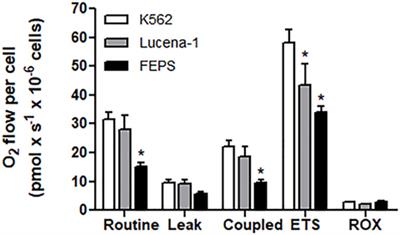EDITORIAL
Published on 16 Apr 2019
Editorial: Cancer Metabolism: Current Knowledge and Perspectives
doi 10.3389/fonc.2019.00287
- 1,512 views
- 3 citations
21k
Total downloads
110k
Total views and downloads
You will be redirected to our submission process.
EDITORIAL
Published on 16 Apr 2019
MINI REVIEW
Published on 05 Jun 2018

HYPOTHESIS AND THEORY
Published on 04 Apr 2018

REVIEW
Published on 23 Mar 2018

MINI REVIEW
Published on 23 Mar 2018

REVIEW
Published on 07 Feb 2018

MINI REVIEW
Published on 05 Feb 2018

ORIGINAL RESEARCH
Published on 02 Feb 2018

ORIGINAL RESEARCH
Published on 19 May 2017

